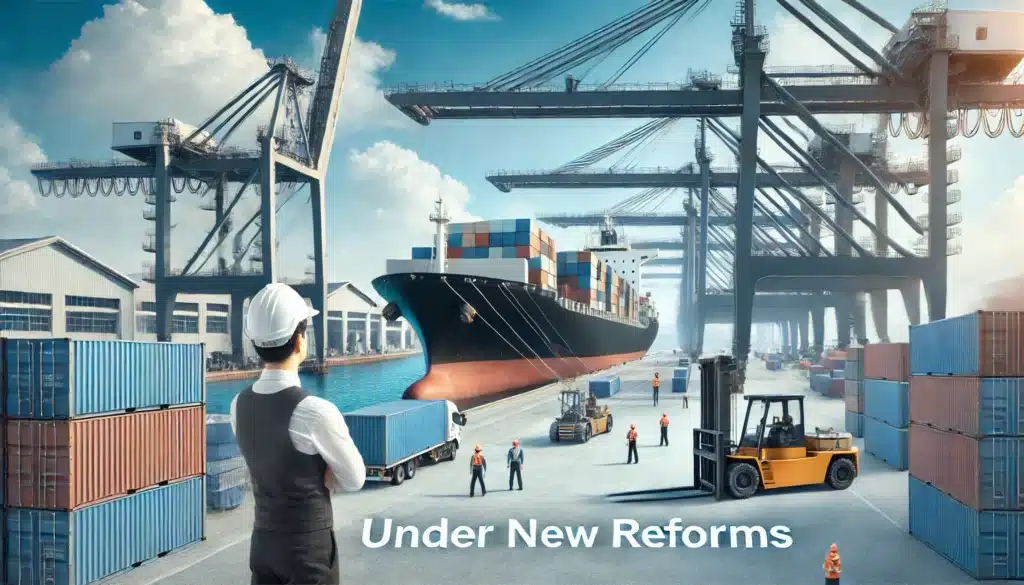- Latest industry news

New Navigation Reform in Argentina: Vessel Watchmen No Longer Mandatory

The Argentine government has enacted a significant change to the Maritime, River, and Lake Navigation Regime (REGINAVE) through Decree 37/2025, eliminating the mandatory hiring of vessel watchmen (serenos de buques) for foreign-flagged ships above a specific tonnage. This reform, part of a broader deregulation initiative, aims to reduce operational costs, simplify procedures, and enhance the competitiveness of Argentina’s maritime sector.
A Key Shift Toward Deregulation
The elimination of this long-standing requirement is seen as a milestone in Argentina’s efforts to modernize its maritime regulations. For years, shipping companies were required to hire watchmen for security purposes, a mandate that added costs and complexity to port operations. By removing this obligation, the government seeks to streamline maritime logistics and provide operators with greater flexibility to meet their specific needs.
The reform aligns Argentina with international standards, reducing bureaucratic hurdles and fostering an environment of economic freedom in the maritime industry.
Benefits of the Reform
Cost Savings for Operators
The removal of mandatory watchmen hiring reduces operational costs for shipping companies, particularly those operating foreign-flagged vessels. This is expected to make Argentine ports more attractive to international operators.
Increased Port Efficiency
By eliminating unnecessary administrative procedures, the reform simplifies port operations, leading to shorter turnaround times for vessels and increased overall efficiency.
Enhanced Competitiveness
The deregulation positions Argentina as a more flexible and business-friendly hub for international maritime trade, potentially boosting port activity and increasing trade volumes.
Government Perspective
Ministers Patricia Bullrich (Security) and Federico Sturzenegger (Deregulation) championed this reform as a critical step in modernizing the maritime sector. During the announcement in Puerto Madero, Bullrich emphasized the freedom and efficiency the change brings.
“These unnecessary requirements imposed additional costs without tangible benefits,” Bullrich stated. “Removing them is a step toward fostering a competitive, economically free maritime sector.”
Sturzenegger added, “This reform allows shipping companies to make operational decisions based on their specific needs, eliminating outdated mandates that hinder efficiency.”
Challenges Ahead
While the reform is widely supported within the industry, it has sparked opposition from unions representing vessel watchmen. The Sindicato Único de Serenos de Buques (S.U.S.B.) has initiated legal proceedings to challenge the decree, arguing that it jeopardizes job security for workers in the sector.
Union Secretary General Antonio Ivaldi expressed his concerns: “This change undermines the rights and protections of our workers. We remain vigilant and committed to defending their interests.”
A Step Toward a Modern Maritime Sector
Despite the controversy, the government is optimistic about the long-term benefits of the reform. By reducing costs and simplifying operations, the new regulations aim to attract more vessels to Argentine ports, fostering growth in trade and economic activity.
Streamline Your Maritime Operations with B&G Maritime
As the maritime sector evolves, navigating regulatory changes can be challenging. At B&G Maritime, we offer tailored services to help shipping companies adapt seamlessly to these reforms. From port operations to comprehensive maritime agency services, our expertise ensures smooth and efficient operations for your vessels.
Contact us today to learn how B&G Maritime can support your operations under the new regulatory framework.
👉 Hire Our Services
share
